Kurt Weill
Nascimento : 1900-03-02, Dessau, Germany
Morte : 1950-04-03

Writer
In an imaginary American city, God consigns its licentious citizens to hell but they truculently reply that they are already there. Mahagonny ‘the city of nets’ is founded in the desert by three criminals on the run from the police. It is to be a city devoted to pleasure. The only god is money. So Jimmy Mahoney, the hedonistic lumberjack, is condemned to death for being unable to pay the bill for the whisky he has consumed. A testament to the fertile but fraught collaboration between composer Kurt Weill and man of theatre Bertolt Brecht, Rise and Fall of the City of Mahagonny is one of the great operas of the 20th century. Brecht might have resented the dominance of the music over the words but together they created a work with rich melody and unstoppable dramatic momentum.

Music
The Seven Deadly Sins tells the story of two sisters, Anna I and Anna II. The sisters set out from the banks of the Mississippi River in Louisiana to find their fortune in the big cities, intending to send their family enough money to build a little house on the river. Along the way they encounter the seven deadly sins. Meanwhile, the fleshpots of Mahagonny attract many visitors, but prove disappointing and expensive; God orders the inhabitants to hell, but they revolt, claiming they are there already"

Music
The main plot of this rampant collection of scenes from the streets of the lower East Side of New York revolves around Frank and Anna Maurrant and their daughter Rose. A violent and tough character, Frank fails to see his wife’s growing despair due to his lack of affection. When he discovers her with her lover, he shots them both and goes to jail, leaving behind a heartbroken Rose who, after having experienced relentless harassment by two aggressive suitors, misses her one true chance at love. The opera ends by showing the streets of New York City moving on from these mundane events in total indifference.

Orchestrator
As London's East End scrubs up for the coronation, Mr and Mrs Peachum gear up for a bumper day in the beggary business. Keeping tight control of the city's underground – and their daughter’s whereabouts.

Musical
As London's East End scrubs up for the coronation, Mr and Mrs Peachum gear up for a bumper day in the beggary business. Keeping tight control of the city's underground – and their daughter’s whereabouts.

Musical
A hard-hitting new production of Kurt Weill’s Rise and Fall of the City of Mahagonny by the Catalan collective La Fura dels Baus at the Teatro Real de Madrid. Composed in the 1930s by Kurt Weill and Bertolt Brecht, this is a mordant satire on capitalism and the inexorable industrialisation of a society in which the ultimate crime is not having money. In twenty scenes the authors tell the story of a city lost in the middle of a desert and run by three thugs; in Mahagonny food, sex, gambling and violence rule supreme.

Music
Macheath (Mack the Knife), notorious bandit and womanizer, runs afoul of Jonathan Peachum when he marries Peachum's daughter Polly in a ceremony of doubtful legality. Peachum's resolve to have Mack sent to the gallows is complicated by the fact that Mack's old army buddy is the chief of police, Tiger Brown. Peachum and his wife commence a series of strategems to ensnare Mack: bribing prostitutes to turn him in, exercising their influence over the police, and ultimately threatening to ruin the coronation of Queen Victoria by having all the beggars in London (whom Peachum controls) line the parade route. Mack is imprisoned, escapes, and is imprisoned again. When his hour of execution arrives, however, a mounted messenger appears with the Queen's reprieve, which includes a baronetcy and an annual pension of 10,000 pounds.

Music
A biblical drama in four acts. Set in a synagogue where Jews hide all night as a pogrom rages outside, the story combines Biblical and pre-World War II Jewish history. The rabbi reads from the Torah, leading, in each act, to the exploration and re-enactment of a different Biblical theme. At the conclusion, the destruction of the Temple in Jerusalem and the deportation of those hiding become one, while the despair of a scattered people is balanced by a messianic voice that speaks of hope for deliverance of the Jews in Zion.

Original Music Composer
Depicts the consumerism of the mythical city of Mahagonny, conveying all its ripe decadence. A Hollywood Babylon full of pyramidal towers, carved elephants, commodified sex and licensed gluttony. An opera in three acts, live from the Salzburger Festspiele, 1998. Conductor: Dennis Russell Davies. Stage Director: Peter Zadek.

Music
The Threepenny Opera proclaims itself "an opera for beggars," and it was in fact an attempt both to satirize traditional opera and operetta and to create a new kind of musical theater based on the theories of two young German artists, composer Kurt Weill and poet-playwright Bert Brecht. The show opens with a mock-Baroque overture, a nod to Threepenny's source, The Beggar's Opera, a brilliantly successful parody of Handel's operas written by John Gay in 1728. In a brief prologue following the overture, a shabby figure comes onstage with a barrel organ and launches into a song chronicling the crimes of the notorious bandit and womanizer Macheath, "Mack the Knife." The setting is a fair in Soho (London), just before Queen Victoria's coronation. In this production, Weill champion HK Gruber led the Ensemble Modern in a performance of Weill's complete original score, the first time it had been heard in Germany in many years. This production was broadcast on German television (3sat).

Music
Filmmaker Larry Weinstein stages a wide range of performances in tribute to the compositions of Kurt Weill.

Music
The opera takes place on the doorstep of a tenement on the East Side of Manhattan on two brutally hot days in 1946. The story focuses on two plotlines: the romance between Rose Maurrant and her neighbor Sam Kaplan; and on the extramarital affair of Rose's mother, Anna, which is eventually discovered by Rose's irritable father, Frank. The show portrays the ordinary romances, squabbles and gossips of the neighbors, as the mounting tensions involving the Maurrant family eventually build into a tragedy of epic proportions. Broadcast on BBC Two on New Years Day, 1993, this production was performed by the English National Opera and conducted by James Holmes.

Original Music Composer
Short opera. A boy falls in love with a girl after an Appalachian prayer meeting, but her father wants her to go to the dance with a local shyster who the father thinks will bail him out of his money troubles instead.

Music

Music
Harry Smith’s final film; an epic four-screen projection. Smith worked on this cinematic transformation of Kurt Weill and Bertolt Brecht’s opera Rise and Fall of the City of Mahagonny (1929) for over ten years and considered it his magnum opus. The film was shot from 1970 to 1972 and edited for the next eight years. The “program” of the film is meticulous, with a complex structure and order. The Weill opera is transformed into a numerological and symbolic system. Images in the film are divided into categories— portraits, animation, symbols and nature— to form the palindrome P.A.S.A.N.A.S.A.P. The film contains invaluable cameos of important avant-garde figures such as Allen Ginsberg, Patti Smith, and Jonas Mekas, intercut with installation pieces from Robert Mapplethorpe’s studio, New York City landmarks of the era, and Smith’s visionary animation.
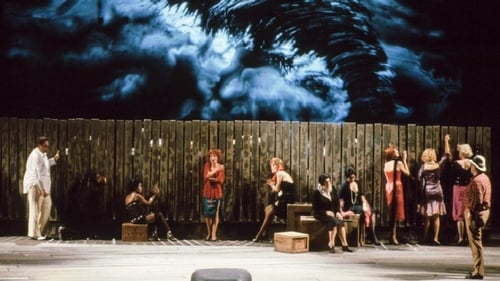
Original Music Composer
John Dexter’s brilliant production, James Levine’s masterful conducting of the eclectic score, and a sensational cast come together to make this Kurt Weill–Bertolt Brecht masterpiece a riveting evening of music theater. At the center of the action is Jimmy Mahoney (Richard Cassilly), a logger who stumbles onto the city of Mahagonny, where (almost) anything is allowed. Teresa Stratas gives a mesmerizing performance as Jenny, the prostitute who takes up with Jimmy, until he is executed for the greatest of all crimes in Mahagonny—to not have any money. The legendary Astrid Varnay, in her final Met appearances, is Leocadia Begbick, and Cornell MacNeil sings Trinity Moses.

Music
"Don't Be Seduced" - Gothenburg's Brecht-ensemble performs songs and texts of Bertolt Brecht, Kurt Weill and Hanns Eisler.
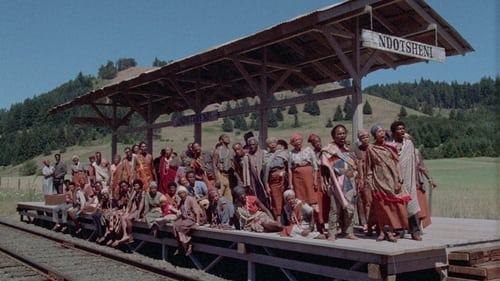
Songs
A black South African minister searches the unfamiliar back alleys and shantytowns of Johannesburg for his son.

Original Music Composer
A black South African minister searches the unfamiliar back alleys and shantytowns of Johannesburg for his son.

Other
A black South African minister searches the unfamiliar back alleys and shantytowns of Johannesburg for his son.

Music
The city of Mahagonny, founded by three criminals, becomes a place for people looking for their luck or money. One among them is the lumberjack Jim Mahoney. However, he is disappointed by what the city is.
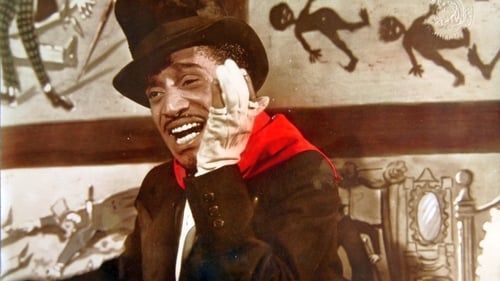
Music
The Gangster Macheath secretly marries the daughter of beggar king Peachum. When Peachum finds out, he instructs the police chief Brown to arrest and hang Macheath. If not, all the beggars of Soho will disturb the upcoming coronation.

Songs
While touring a museum, Rodney Hatch, an unremarkable barber, places an engagement ring intended for his girlfriend on the hand of a statue of Venus, the goddess of love and beauty. From Mount Olympus, Venus witnesses the event and decides to visit Rodney on Earth by magically inhabiting the statue. Hilarity ensues when she starts to fall in love with Rodney and competes with his girlfriend for his attentions. This television version of Kurt Weill's successful Broadway musical is much more faithful to the stage version than the 1948 Ava Gardner film, which changed the story considerably and cut most of the songs.

Music
While touring a museum, Rodney Hatch, an unremarkable barber, places an engagement ring intended for his girlfriend on the hand of a statue of Venus, the goddess of love and beauty. From Mount Olympus, Venus witnesses the event and decides to visit Rodney on Earth by magically inhabiting the statue. Hilarity ensues when she starts to fall in love with Rodney and competes with his girlfriend for his attentions. This television version of Kurt Weill's successful Broadway musical is much more faithful to the stage version than the 1948 Ava Gardner film, which changed the story considerably and cut most of the songs.

Original Music Composer
The unhappy female editor of a fashion magazine is undergoing psychoanalysis.
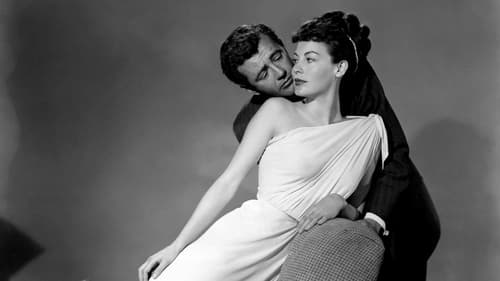
Music
A window dresser's kiss brings a statue of the Roman goddess of love to life.
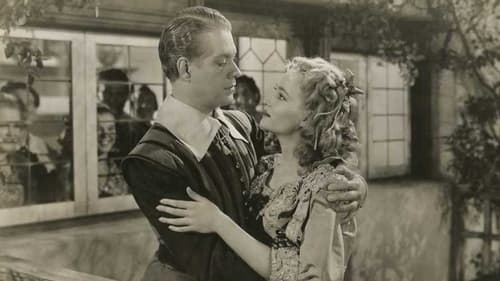
Music
The wild and woolly early days of New York -- when it was still known as New Amsterdam -- provide the backdrop for this period musical-comedy. In 1650, Peter Stuyvesant (Charles Coburn) arrives in New Amsterdam to assume his duties as governor. Stuyvesant is hardly the fun-loving type, and one of his first official acts is to call for the death of Brom Broeck (Nelson Eddy), a newspaper publisher well-known for his fearless exposes of police and government corruption. However, Broeck hasn't done anything that would justify the death penalty, so Stuyvesant waits (without much patience) for Broeck to step out of line. Broeck is romancing a beautiful woman named Tina Tienhoven (Constance Dowling), whose sister Ulda (Shelley Winters) happens to be dating his best friend, Ten Pin (Johnnie "Scat" Davis). After Stuyvesant's men toss Broeck in jail on a trumped-up charge, Stuyvesant sets his sights on winning Tina's affections.

Songs
The wild and woolly early days of New York -- when it was still known as New Amsterdam -- provide the backdrop for this period musical-comedy. In 1650, Peter Stuyvesant (Charles Coburn) arrives in New Amsterdam to assume his duties as governor. Stuyvesant is hardly the fun-loving type, and one of his first official acts is to call for the death of Brom Broeck (Nelson Eddy), a newspaper publisher well-known for his fearless exposes of police and government corruption. However, Broeck hasn't done anything that would justify the death penalty, so Stuyvesant waits (without much patience) for Broeck to step out of line. Broeck is romancing a beautiful woman named Tina Tienhoven (Constance Dowling), whose sister Ulda (Shelley Winters) happens to be dating his best friend, Ten Pin (Johnnie "Scat" Davis). After Stuyvesant's men toss Broeck in jail on a trumped-up charge, Stuyvesant sets his sights on winning Tina's affections.

Music
Directed by Garson Kanin and Jean Renoir.

Music
Mr. Morris, the owner of a large metropolitan department store, gives jobs to paroled ex-convicts in an effort to help them reform and go straight. Among his 'employed-prison-graduates' are Helen Roberts and Joe Dennis, working as sales clerks. Joe is in love with Helen and asks her to marry him, but she is forbidden to marry as she is still on parole, but she says yes and they are married. In spite of their poverty-level life, their marriage is a happy one until Joe discovers she has lied about her past, in order to marry him. Disillusioned, he leaves, goes back to his old gang and plans to rob the department store.

Music
The French-language version of the The Threepenny Opera with a different cast from the German version.
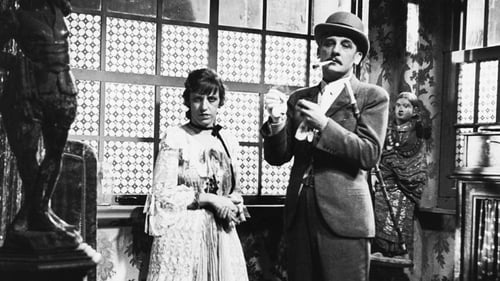
Music
Em Londres, na virada do século XIX para XX, Mackie, um cafetão e cafajeste conhecido como “A Navalha”, se casa com Polly, a filha de um empresário de mendigos.



























